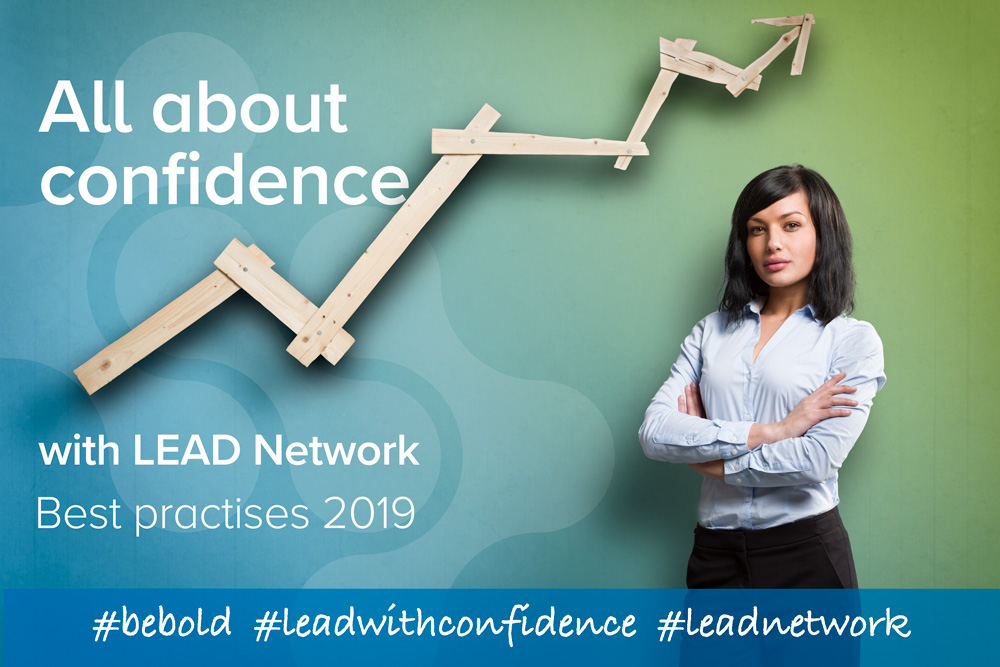All About Confidence
We must change the narrative about women’s confidence. Myths of women lacking confidence and ambition are getting in the way. Men and women are different and as result confidence and ambition show differently. There is nothing wrong with that.
The problem is how we look at it and how we describe it. What we assume is that behaviour deeply rooted in long-standing traditions is the norm. Very often, the definition of normal in the business world is based on traditional male behaviour. And when we see women’s behaviour is different, we describe it as wrong, insufficient, and must change. In many cases, we give it a negative label, and it becomes part of the narrative. We do not give a label to the traditional male behaviour, and it is not the be-all standard!
We must stop fixing women. We often hear that the key to greater business results is building an inclusive culture and not simply improving diversity representation. Research confirms that both women and men experience inclusion when they believe that their unique and authentic self is valued by others, while at the same time they have a sense of belonging to a group. Certainly, everyone must keep learning if they want to grow their careers, but both women and men should be allowed to do it while remaining congruent with whom they are.
Many problems with our current way of working camouflage as a confidence gap.
For instance, studies show that men tend to overestimate their abilities in many areas from math to entrepreneurship, while women underestimate theirs. Unfortunately, when a woman says she isn’t fully qualified for a role, or a man says he is, we believe both—and use this as proof that women need more confidence. Research, however, shows this is not what happens. The reason women don’t apply to roles when they don’t meet all criteria is not lack of confidence but lack of understanding how hiring processes really work and because they are following the hiring process guidelines. And when almost-qualified women don’t apply, while underqualified men do, neither of this is good for companies!
We must change corporate cultures and systems. In most developed countries, women finish higher education at equal or higher rates than men. Research confirms that when they enter the workforce, men and women have their eyes equally on top leadership positions. In a few years, this ambition is less expressed proactively. Not because women are less confident in their capabilities. It happens because women are often seen as the ones who need an exception, because they often lack access to inspiring and authentic role models, or because they must navigate a career system that has been built for the family model of the past. We need to rewire corporate culture to where leaders are deeply empathetic to different needs of their employees, where access to a broad set of role models is the norm, and where the default setting includes what works for women.
Our LEAD Network membership survey indicated that women’s lack of self-confidence is seen as one of the greatest barriers to their advancement in the corporate world. So, in the first quarter of 2019, as part of our strategic pillar “Helping our partners progress towards gender equality”, we’ll be running the “All about Confidence” Campaign, showcasing practices that build inclusion, change the system, create visibility for talented women, and provide them with role models. The campaign will include a range of webinars, virtual roundtables, resources and interactive sessions through the Chapters. And we’ll ask women to remain who they are.
We must change the narrative. We must stop fixing women. We must change corporate culture and systems that are in the way of inclusion. I’m asking our LEAD Network members to contribute to this dialogue. Join the discussion via #bebold, #leadwithconfidence, #leadnetwork and join us for the first webinar on January 15th – “Lean In Circles: Be unapologetically ambitious” with Emma Roberts, Lean In Europe Program Lead @ LeanIn.Org – Sheryl Sandberg & Dave Goldberg Family Foundation.
Moni Buzasy, Head of Talent Europe at Procter & Gamble and Vice Chair of the LEAD Network Education Committee.





